Samsung Galaxy Watch8 vs Garmin Venu X1: which one logged my run better?
Here's how they compare
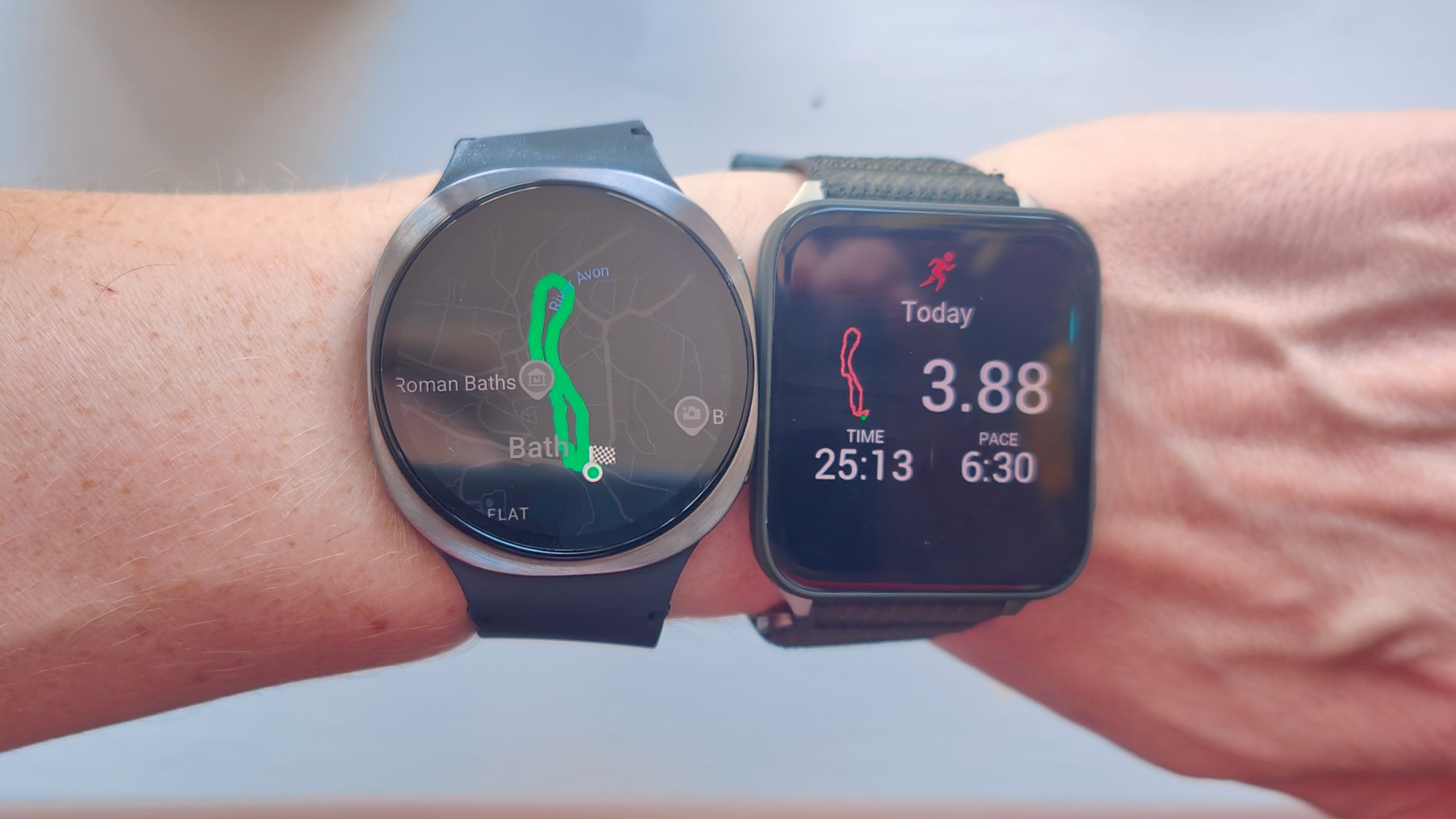
The Samsung Galaxy Watch8 is Samsung's latest flagship smartwatch, and it's got some serious running smarts. A new slimmer, lighter shape and strap redesign means it sits snug on your wrist, preventing movement during running, while on the metrics front it tracks everything from asymmetry in your stride to stiffness in your gait. A new Running Coach feature offers you one of over 150 different running plans for your chosen distance, switching intelligently as you progress based on your performance.
It seems like, for the first time, we might have a Samsung watch in our best running watches list. However, the running watch category tends to get dominated by one name in particular: Garmin. The best Garmin watches last for days or even weeks as opposed to Samsung's paltry 40 hours, and come stacked with great running features such as Hill Score, measuring your effectiveness up hills, and easy running route creation. Can Samsung's latest offering stack up to a top-flight Garmin watch? Time we found out.
The test
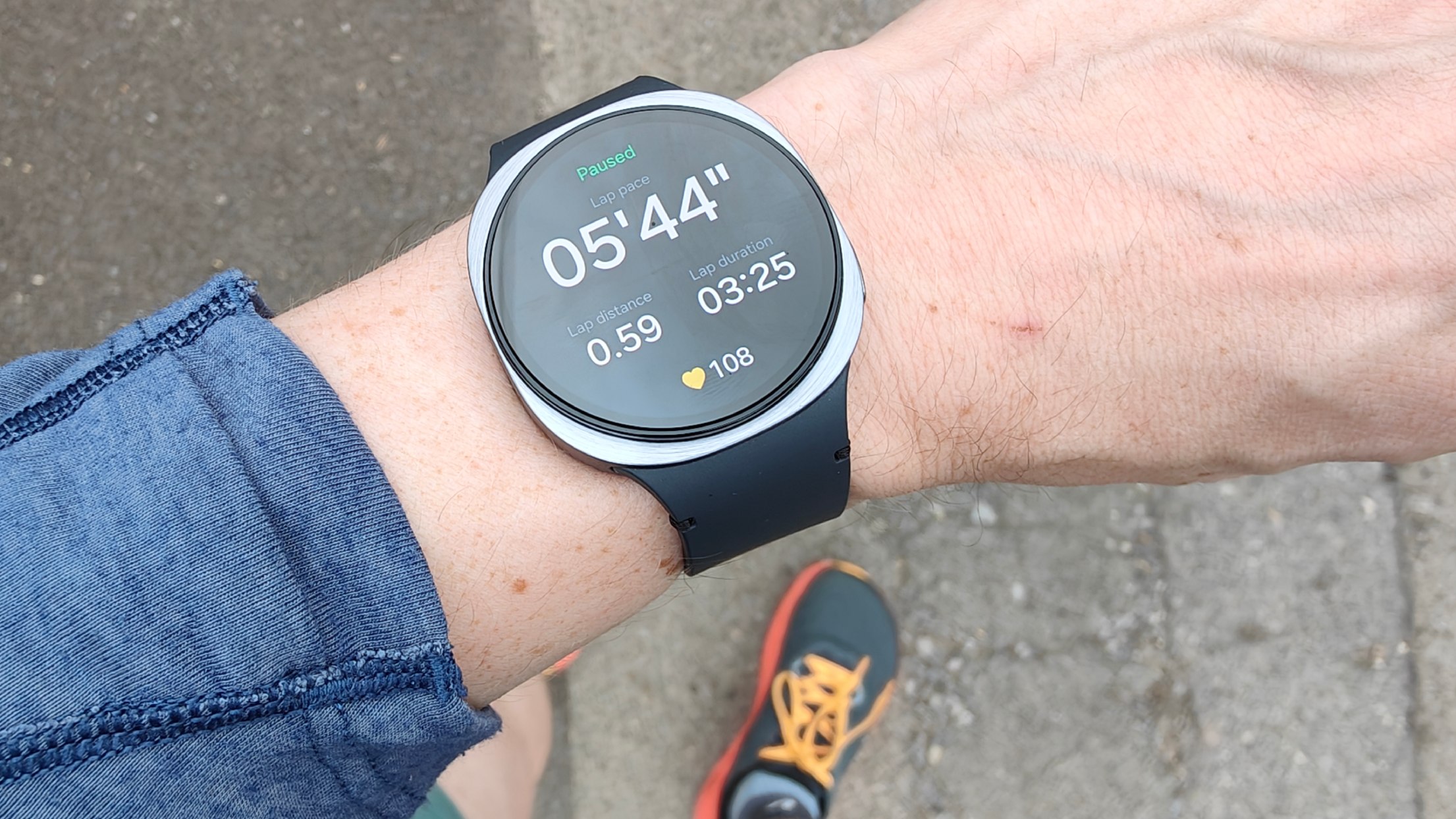
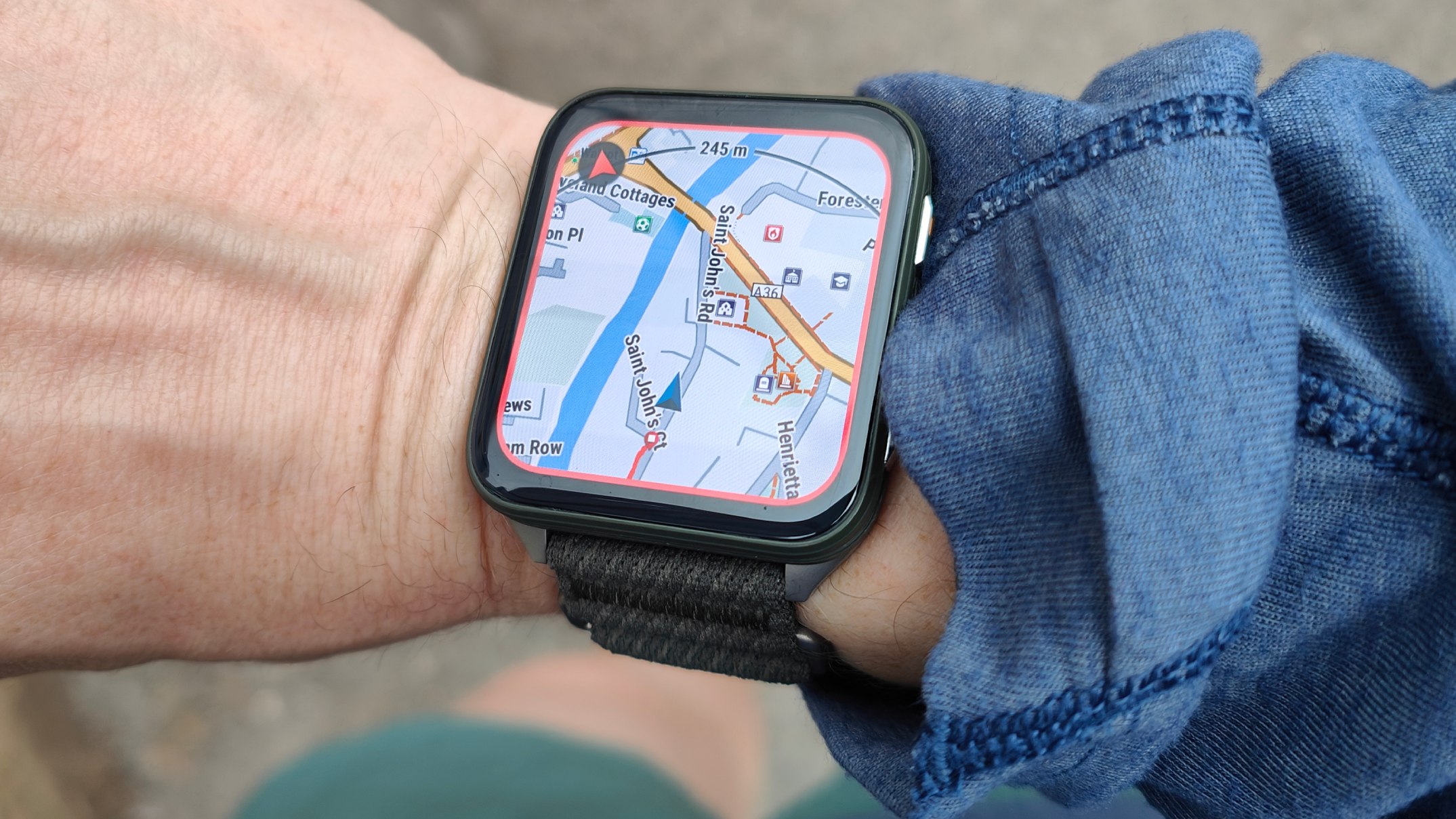
I measured the Samsung Galaxy Watch8 against the Garmin Venu X1, Garmin's latest high-end activity-focused watch. The aim was not to see which was the better smartwatch overall, but to test Samsung's mettle as part of my review process. I'm looking for a close match in heart rate and GPS information, along with detail and quality in the analysis of my test run.
The route was an easy lunch break-friendly 4km (or 2.5 miles, take your pick) with a good amount of elevation both up and down. The first half of the route is by a river, without many buildings, but the homeward leg of the run is through some densely packed streets, which has the potential to interfere with either watch's GPS.
The results
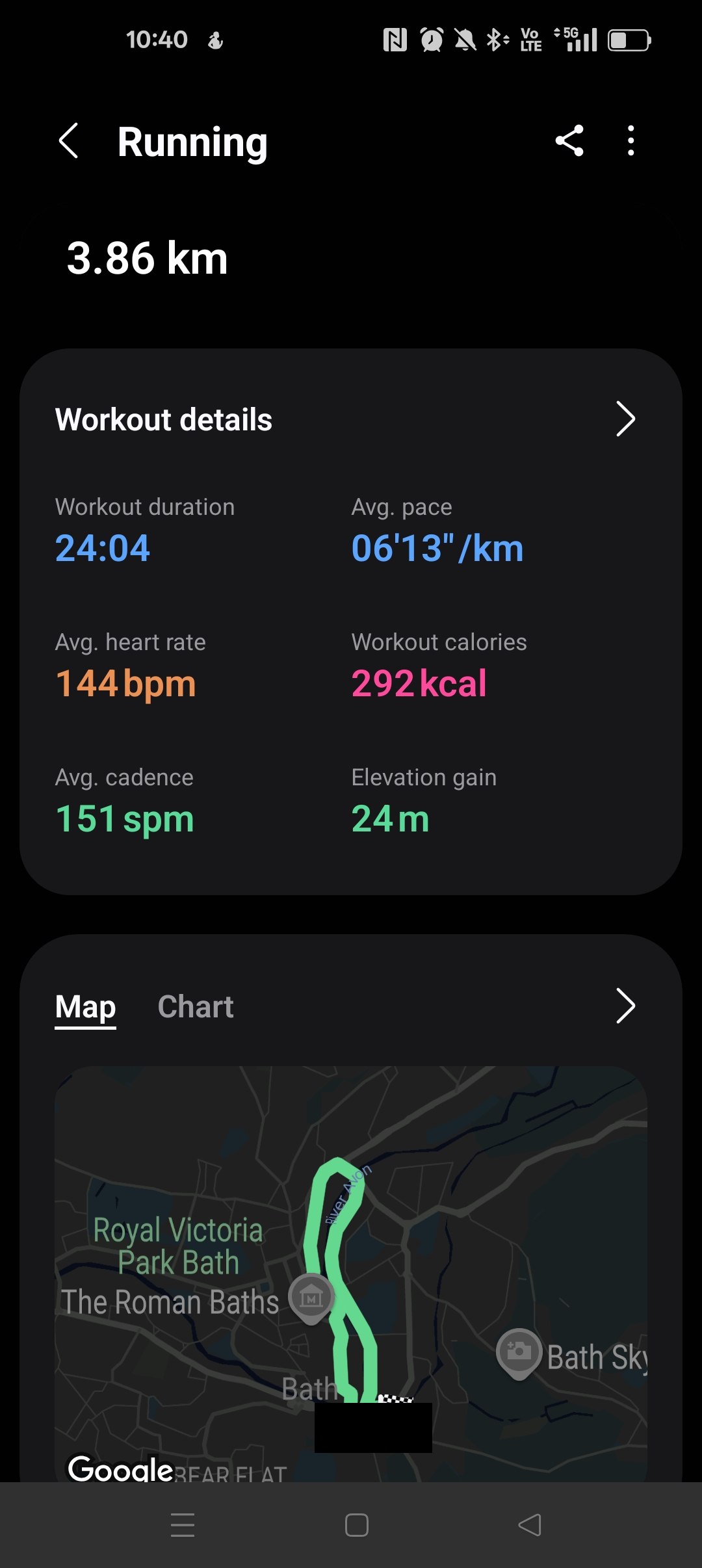
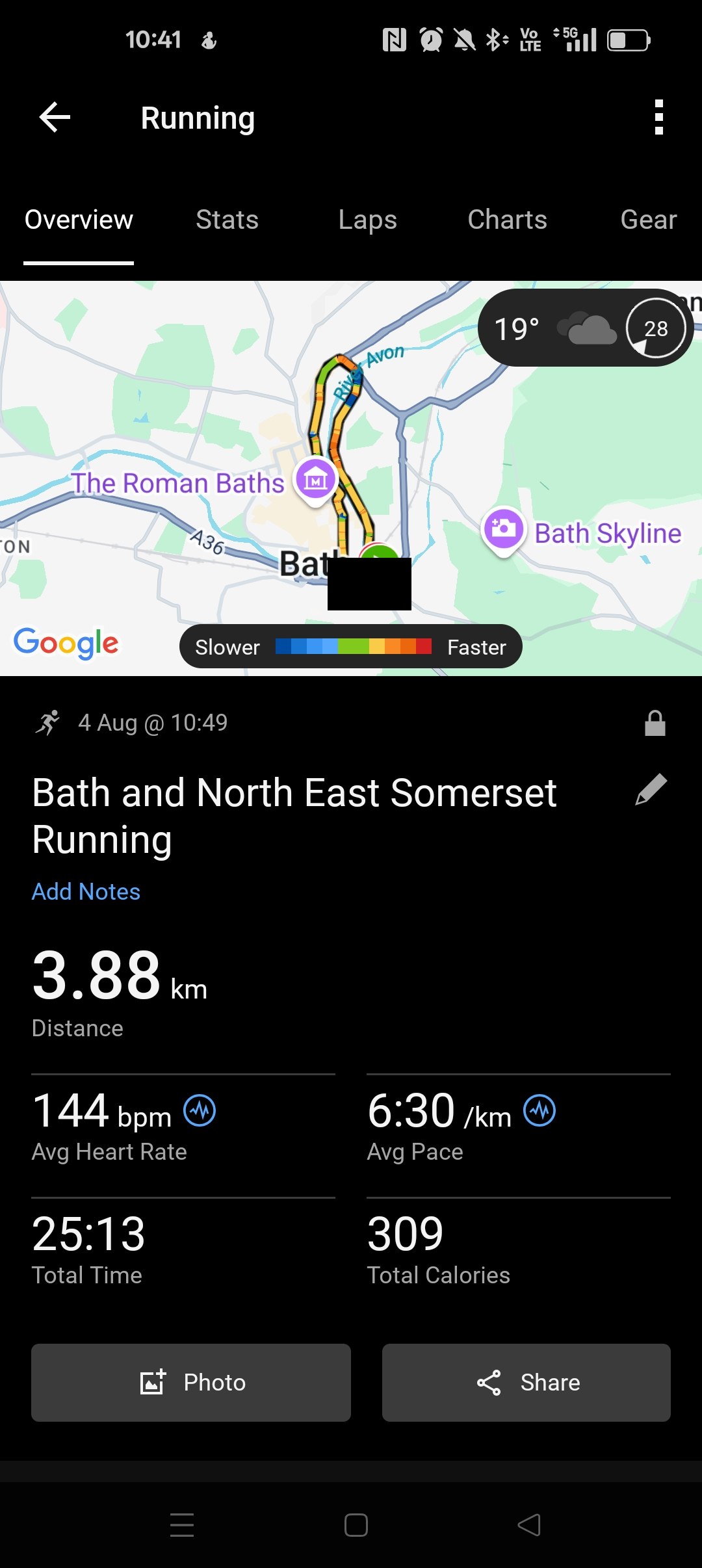
As you can see in the gallery above, Picture 1 shows Samsung reading the run as 3.86km, with an average heart rate of 144 beats per minute. It estimates my calorie expenditure as 292 kcal, with a 24m elevation gain.
Picture 2 shows Garmin's results, clocking in at 3.88km, a 0.02% difference and well within the acceptable margin for error to account for the algorithmic difference in processing GPS information. For more details on the differences in how GPS data are processed from different watch brands, I covered how it works in my Apple Watch vs Garmin Watch marathon test.
Garmin shows a 144 beats per minute average heart rate, exactly the same as Samsung, with a 17kcal difference in calorie expenditure and 26m elevation gain. Again, I'm happy with this acceptable margin for error, and satisfied that both watches have recorded accurately given that their results landed so close together. Garmin recorded my cadence at 145 steps per minute on average, as opposed to Samsung's 151 steps per minute. Again, a six-step difference over 25 minutes is hardly a statistical gulf.
Sign up for breaking news, reviews, opinion, top tech deals, and more.
The conclusion
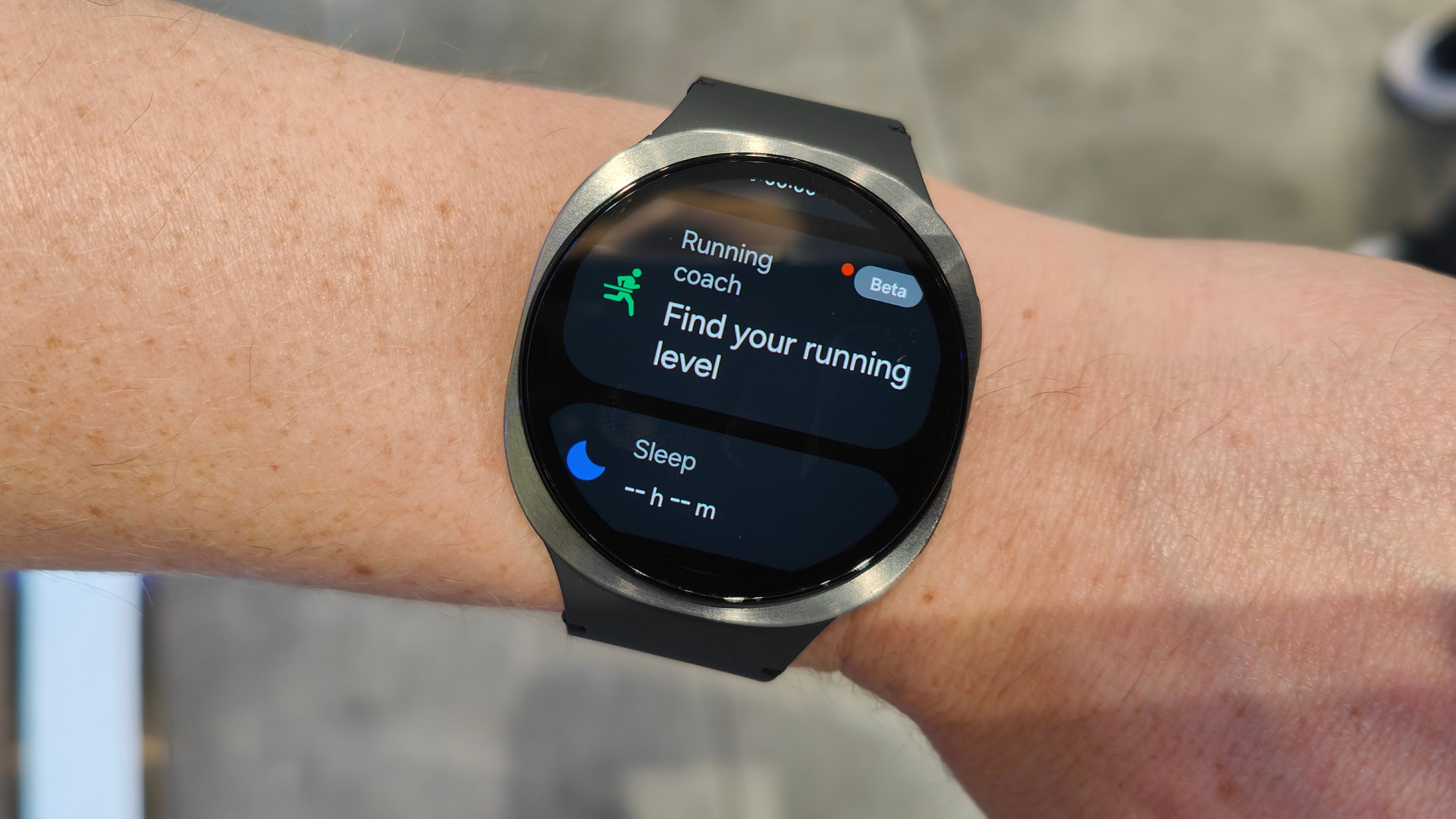
The Samsung Galaxy Watch8's running metrics are very much up to snuff, and can compete with the best running watches out there. I'd be more than happy to train for a major event with the Watch8 on my wrist, as it's a lot lighter than the Samsung Galaxy Watch Ultra – although the battery life remains lackluster.
I was even impressed with the Watch8's post-game analysis: it registered some stiffness in my gait and marked it in the Samsung Health app as "needs improvement", but that's not what really impressed me. Alongside the verdict was a little icon marked "drills". When I tapped it, it showed me a series of five exercises, complete with demonstrations, to improve my running stiffness score.
Actionable, contextual information, rather than just throwing stats at you for the sake of it? Superb. We don't need more information on our watches: we need more useful ways to take the learnings these wearables can provide, and incorporate them into our training.
Now I've finished testing, stay tuned to TechRadar for my full verdict on the new Samsung watches.
You might also like...

Matt is TechRadar's expert on all things fitness, wellness and wearable tech.
A former staffer at Men's Health, he holds a Master's Degree in journalism from Cardiff and has written for brands like Runner's World, Women's Health, Men's Fitness, LiveScience and Fit&Well on everything fitness tech, exercise, nutrition and mental wellbeing.
Matt's a keen runner, ex-kickboxer, not averse to the odd yoga flow, and insists everyone should stretch every morning. When he’s not training or writing about health and fitness, he can be found reading doorstop-thick fantasy books with lots of fictional maps in them.
You must confirm your public display name before commenting
Please logout and then login again, you will then be prompted to enter your display name.